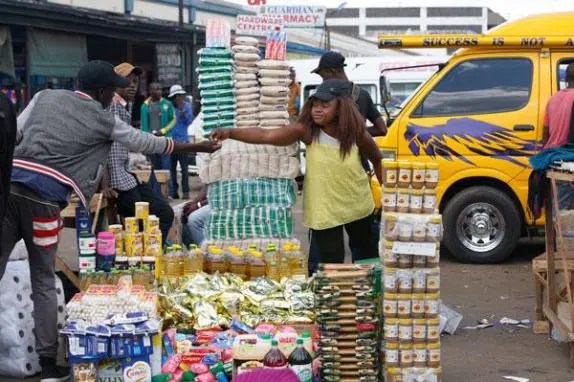US$5,5m Bootleg Seized In Multi-agency Anti-smuggling Blitz
GOODS worth approximately US$5,5 million were seized during the first six months of the year in a multi-agency operation targeting importers and cross-border transporters involved in smuggling and other unethical business practices.
The operation, which resulted in the seizure of dozens of vehicles — including cross-border buses and haulage trucks — as well as the confiscation of illicit goods such as foodstuffs and second-hand clothing, is being co-ordinated by Government agencies.
According to the Ministry of Finance, Economic Development and Investment Promotion, the exercise involves inspections of vehicular traffic, particularly commercial and passenger transport, operating along cross-border trade routes and is aimed at identifying transporters and importers engaged in non-compliant activities.
Finance, Economic Development and Investment Promotion Minister Professor Mthuli Ncube said the exercise is part of measures to safeguard natural resources and curb the rampant smuggling of goods.
“Government, in collaboration with law enforcement agencies and the Zimbabwe Revenue Authority (ZIMRA), is implementing a robust system to curb leakages from unprocessed natural resources and prevent smuggling of goods,” he said.
“The anti-smuggling blitz was launched nationwide, targeting illegal trade and enhancing customs compliance. The 2025 first half outcomes are as follows: 384 Notices of Seizures (NOS) issued for smuggling and unaccustomed goods, 645 receipts issued for items held pending duty payment.
“In terms of the revenue impact, collections from seized goods totalled ZiG129.7 million (US$4 961 538 at official exchange rate) and US$614 851.30, while duties on detained items amounted to ZiG89.2 million and US$1.9 million.”
The operation, Prof Ncube said, seeks to regularise imports, ensuring all importers pay duties and taxes while addressing domestic tax liabilities for both formal and informal traders.
“It also protects the public from harmful imports, such as hazardous foodstuffs and cosmetics and safeguards businesses from trade malpractices like counterfeiting and intellectual property violations.
“Additionally, it supports legitimate traders facing unfair competition and enhances supply chain and national security,” he said.
Presenting the 2025 national budget, Prof Ncube called on the Government to implement strong measures to curb the smuggling of goods, particularly food, beverages and medical supplies, as this was negatively impacting the manufacturing sector.
“The proliferation of imported goods which retail at prices lower than what would ordinarily apply considering the source countries’ ex-works prices, insurance, freight and duty payable is indicative of tax evasion, especially smuggling,” he said.
“High incidences of smuggling undermine initiatives to enhance local production, value chains, as well as employment creation. Smuggling also creates an uneven playing field between locally produced and legally imported products, undermines Government revenue, promotes illicit activities and discourages investment; hence, the need to review the current anti-smuggling strategies.
“In addition, smuggling is a threat to public health and safety as smuggled goods, in particular, food items, medicines and alcohol, are not subject to health and safety controls. Whereas the Government recently introduced drones at ports of entry, with a view to combat smuggling, it has become necessary to introduce complementary measures, as smuggled goods continue to flood the market.”
Last year, the Government, through a high-level task force established by Cabinet, launched a multi-agency operation to clamp down on smuggling and unethical business practices.
The Ministry of Industry and Commerce is spearheading the task force, in collaboration with Zimra, the Zimbabwe Republic Polic, the Reserve Bank of Zimbabwe, the Consumer Protection Commission and other law-enforcement agencies.
Businesses using parallel market exchange rates or selling counterfeit, underweight, or unlabelled goods are also being targeted.
To enforce compliance, authorities have established 24-hour checkpoints along major highways leading into all key cities.
Retail outlets are undergoing random inspections, with owners required to produce documentation proving the legal importation of their stock.
Those who fail to comply face hefty fines and the confiscation of their goods.




